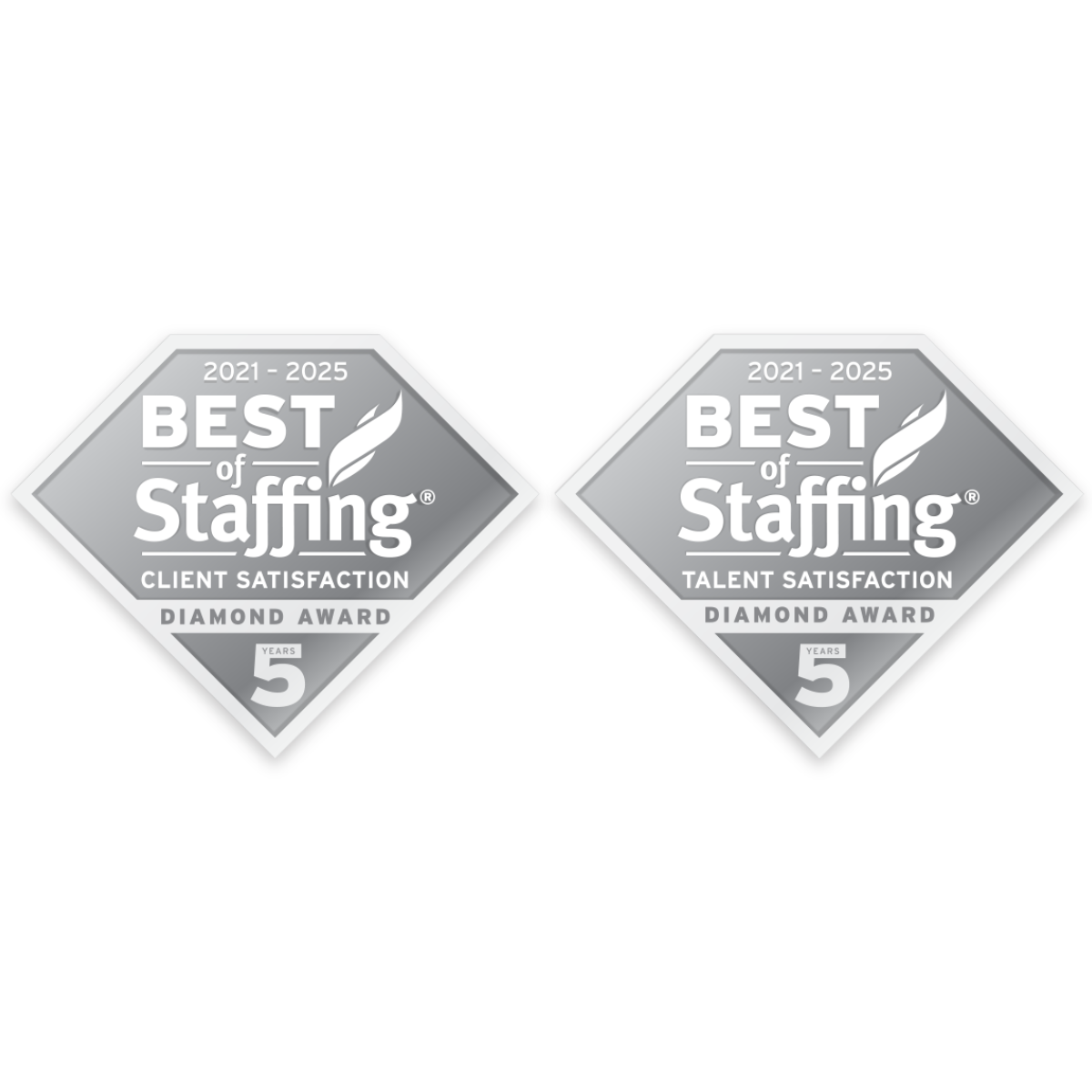What do you call that period between jobs, especially one that spans a lengthy amount of time? It’s an employment gap. And it happens, both by choice and not.
It’s so prevalent that it comes up in the lyrics of a song. Alternative/Indie musician Pinhead Gunpowder in “Freedom Is” muses: “They say if you’re not working, you’re just wasting away, ‘Employment gaps look bad on your resume,’.” Warning: If you decide to listen to this, turn the volume down. The singer is angry.
If there’s an employment gap in your work history, should you too be angry, defensive, elusive, and aloof? If there are several of these potholes along your career path, are you doomed? In other words: how should you address this issue in a job search?
As They Say in the NYC Subway System: “Watch the Gap”
What are potential employers thinking when they see a gap or gaps? The answer is simple: “Why?”
“There are a variety of reasons, both voluntary and involuntary, why someone might have a gap in employment,” explains a post from Study.com. Examples are plentiful. Some workforce participants may break the continuous employment cycle to raise a family, care for a sick or elderly loved one, or for their own medical problems. They may leave to advance their education, pursue a project, for a special interest, or to travel.
When it’s time to plunge back in, potential employers will typically ask for an explanation. So what should you say?
Tip #1: Be upfront and tell it like it is.
“Be honest,” according to “How to Explain the Gap in Your Resume with Ease.” This piece references The Essential HR Handbook, which advocates the adage “honesty is the best policy” for this hiatus, no matter what the reason. “Don’t hide it; explain it… During the entire process of conducting a job search, maintain your integrity and demonstrate it. Jobs come and go, but being known for being truthful — and conversely, deceitful — can last a lifetime.”
The author of the book cited is not alone in this thinking. The first post above from Study.com concurs. “Be honest. Whatever you do, don’t lie on your resume. Recruiters will check your work history. So tell the truth, explain what you were up to when you were unemployed.”
Here’s an idea from The Guardian. “If it’s a short gap sandwiched between longer periods of employment, you can deflect attention by giving the date of employment in years, rather than in months. For example, ‘2002 – 2006’ rather than ‘January 2002 – October 2006.’ But if you were out of work for more than a few months, or your dates of employment are short, don’t try to conceal a gap.”
Now for the scary one. What if you were let go from a job? The same principle applies — be aboveboard. Show your hand. Don’t misrepresent the facts. “You don’t need to lie about why you left. Frame it as a learning experience.” Be frank but with an upside spin. For instance, “You didn’t do as well as you’d hoped because you needed more training and mentoring. It taught you to ask for regular feedback from your manager.”
Tip #2: Stay upbeat and project that spirit.
Following up on the last point, address any break in employment positively and constructively. Put forth good energy. Don’t apologize for the decision(s) you made or made for you. Consider this: “It is important to realize that depending on the length of your time off, the recruiter may not even notice. If they do notice, chances are it is not very important to them. A good recruiter or hiring manager wants to talk to you about your prior experience, your skills, and what you can offer the company.”
Be confident — it’s infectious. How you deliver information can influence how it’s received and the ultimate outcome. A wise supervisor once shared this point of view with me. Although I had not considered this strategy, I used it. When I approached upper management with my need to take a leave of absence at a busy time at the firm, I did so with excitement about my situation. It worked.
TopResume.com confirms this notion. “If you are enthusiastic about the time you took, share that enthusiasm with the recruiter.” But keep in mind: “you don’t need to overshare.”
Tip #3: Add value to the gap — fill it!
Remember in school when you had to write about what you did on your summer vacation? Construct a version of this assignment for your vacation from work, only do it as a civil engineer focused on building a bridge. What did you learn? What did you do that enhances your desirability as a worker? Take inventory. Be creative, if need be.
How can you get started on plugging your career cavity? The Harvard Business Review is at your service here. “Write down every project you’ve spent time on in between the roles currently listed on your resume, or since you’ve been unemployed. Now, look at the descriptions of the jobs you’re interested in applying to and see if you can make any connections between your list and what the hiring managers are looking for. Ask yourself: ‘Have I gained any skills that align with the job requirements?’ Your goal is to reframe your experiences in a way that will help employers draw a connection between the role they are trying to fill and the skills you can offer.”
“There’s Nothing Wrong With Having a Gap Between Jobs” echoes this theme. “Reiterating skills and experiences from your employment gap to communicate with recruiters can set you apart from other candidates. Whatever your reason for a gap between jobs, it is perfectly fine — use it to your advantage!”
Tip #4: Flaunt the cutting edge.
Show that time and trends did not pass you by when you were out of the workforce. Prove you remained current in your field and the world of work and perhaps even went above and beyond. “Mind the gap: don’t let missing work history damage your CV and interview” from The Guardian offers suggestions. “Make it clear at the interview that you’re up-do-date with events in your industry, so make sure you stay in touch with contacts, keep up membership of professional organizations and attend industry events.”
It also discusses the value of networking. Extending your contacts provides a pipeline to discover and learn about opportunities and, above all, “which organizations and jobs are best suited for your personality, working style and career needs.” Then take that information, embed it in your resume, and use it in your interviews.
Staying on track is also critical to the technical and process parts of occupations. Can you, when offered a job, start being productive immediately? Provide solid examples that pertain exactly to the position/company/industry under discussion.
Tip #5: Do the hard work to return to work.
All of these tips have one thing in common. They require reflection and effort.
Prepare!
Don’t assume that re-entering the employment sector is a simple matter of thinking on your feet. True, some on-the-spot responses will take place at interviews. But have your ammunition at the ready and fine-tuned.
Practice, Practice, Practice!
Get your narrative down pat. Don’t meander. Knead your material — take out the lumps so that it’s smooth and clear-cut. Be succinct. Short and simple, yet cohesive, may seal the deal.
Good News: The Times They Are A-Changin’ (thanks, Bob Dylan)
Change is constant. That’s life. The changes brought about by COVID-19 have hit us especially hard through lost health, lost lives, and lost jobs. However, is there is a glimmer of hope for those who have been cast off the payroll and seek to rejoin the workforce? The silver lining is that the pandemic has altered the concept of the employment gap.
Fret not, the stigma of being laid off and dislocated is beginning to fade. That’s the thrust of “Jobless for a Year? That Might be Less of a Problem Now.” It explains: “People who were out of work for a while have typically found it much harder to get a job. The pandemic may have changed how employers view people who have been unemployed for months or years.” There’s more. “The importance of what are often referred to as ‘resume gaps’ is fading, experts say, because of labor shortages and more bosses seeming to realize that long absences from the job market shouldn’t taint candidates.”
This line of thinking goes beyond this citation. Another post reinforces this point in its headline: ”Covid Lesson – Stop Rejecting Job Jumpers And Those With Employment Gaps.” Welcome to the new world, where the path forward is to “sidestep this ‘work history flaw.’” The content groups gaps and frequent “job jumpers” in the same category of what traditionally was regarded as employment risks. “However, today’s smart hiring managers realize that both of these possible problem areas should not be automatically counted against a candidate in the current work environment.” But this shift is not limited to the present. That’s because “high resignation rates and employment gaps may be a permanent factor.”
Regardless of Covid, it’s of value for recruiters to “ditch the dated outlook.” Why? “Candidates having an employment gap should no longer come as a surprise.” Recruiters should understand: “For many people, this gap is a wonderful and exciting time to grow, slow down, reposition, follow passions, and shirk routine.” This applies to those who deliberately departed and those for whom a gap was outside their control. The upshot: “Times have changed, and an employee can still be loyal and committed even if they do not work every day of their adult life.”
What’s the Meaning of All of This?
Prospective employers have the right to pose relevant questions about an applicant’s work history. But this shouldn’t be akin to an interrogation in a sealed room with a bare lightbulb hanging down.
Candidates and companies, heed this informed point of view: “A good hiring manager will ask you about your employment gap because they want to understand the way you think and how you deal with different types of situations. If the interviewer grills you about your employment gap or seems to be trying to pry additional information from you, that’s a red flag. Reconsider if this is the type of work culture and individual you want to work with.”
Both employers and candidates have a say in employment decisions. Hiring managers would be wise to veer from being invasive as well as adapt to new realities. And job-seekers should do their homework and, in the end, conclude if an offer aligns with their needs and sensitivities.
About the author.
You name it, she covers it. That’s the can-do attitude Sherry M. Adler brings to the craft of writing. A polished marketing and communications professional, she has a passion for learning and the world at large. She uses it plus the power of words to inform and energize stakeholders of all kinds. And to show how all of this can make a difference, she calls her business WriteResults NY, LLC.



